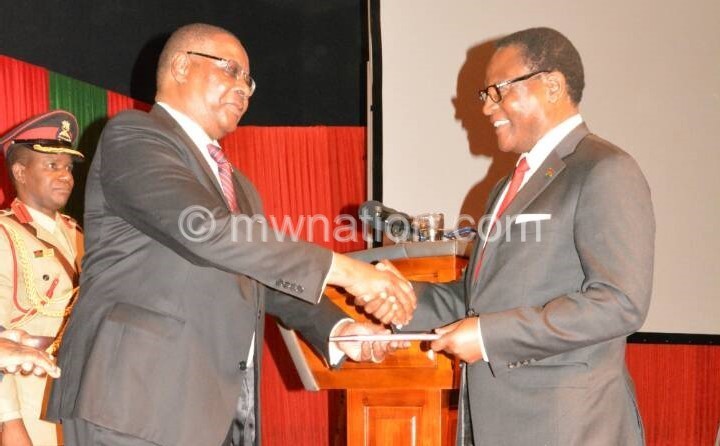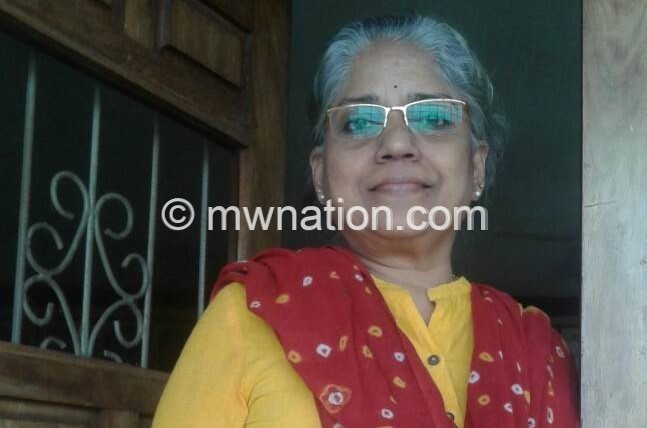Peace policy gathers dust
Nineteen months after launching the National Peace Policy (NPP), Malawi is yet to integrate the peace-building initiatives as the document is gathering dust at Capital Hill.
During the launch of the NPP in November 2017, President Peter Mutharika and then leader of opposition in Parliament Lazarus Chakwera symbolically shook hands amid fanfare at the Bingu International Convention Centre (Bicc).

On Monday, the Council for Non-Governmental Organisations in Malawi (Congoma) joined growing calls for a political solution to the prevailing post-election stalemate and tension that has gripped the country following the announcement of presidential election results in the May 21 Tripartite Elections.
In a statement dated July 27 2019 and signed by its chairperson Steve Duwa, Congoma said the determination of the case in which UTM Party president Saulos Chilima and Chakwera of Malawi Congress Party (MCP) are seeking the nullification of the presidential results may not provide a win-win scenario; hence, the need for a political settlement to complement the court process.

Thus, the statement calls on government to exercise its powers to restore peace and calm besides initiating the electoral reforms process.
Reads the Congoma statement: “A political solution is probably the most viable and sustainable way if Malawi is to be united with or without the court determination. This is in recognition of the fact that court cases rarely provide win-win scenarios, but whoever loses becomes a spoiler and Malawi will continue to go in circles.”
In a written response, Minister of Information, Civic Education and Communications Technology Mark Botomani said the NPP was operational, but did not give reasons why the document was not being used by government in the circumstances.
He said: “The policy created new structures and also proposed some legislative reforms. The ministries of Justice, Defence and Homeland Security are responsible for the implementation of bits and pieces of the policy.”
The NPP, which United Nations Development Programme (UNDP) hailed as a step in the right direction in terms of strides for the country to promote peace, among others, seeks to resolve deep sources of conflict by addressing behaviours, attitudes and changing the structure of conflict through dialogue, negotiation and problem solving approaches.
In an earlier interview, National Peace Architecture chairperson Apostle Madalitso Mbewe admitted a lack of activity.
He said: “Currently, we are looking at ways how we can step in the light of the unstable political environment that the country is going through.”
In her reaction, Catholic University of Malawi associate professor of political leadership Nandini Patel on Monday said Malawi needs a collective initiative on dialogue and not sporadic efforts.
“To me, what Congoma is saying is true that the country needs a political solution. But then, what we are seeing on the ground where disjointed efforts are being made will not achieve the intended results.
“What the country needs now is a joint approach and the government would have been an ideal starting point. Unfortunately, we are yet to see that kind of political will from the ruling side.”
On his part, Gift Sambo, a political commentator based at the University of Malawi’s Chancellor College, argued that efforts to bring together all parties before the determination of the election results court case would not deliver the desired results.
Tension has engulfed the country since May 27 when Malawi Electoral Commission (MEC) chairperson Jane Ansah declared Mutharika of Democratic Progressive Party (DPP) as winner of the presidential race with 1 940 709 votes representing 38.57 percent. He was followed by Chakwera with 1 781 740 votes representing 35.41 percent with the country’s immediate past vice-president Chilima finishing third and ahead of four other aspirants with 1 018 369 votes representing 20.24 percent.
Chilima and Chakwera have since filed a petition seeking nullification of the presidential election results in the May 21 Tripartite Elections on the basis that there were irregularities, especially in the result management system.





